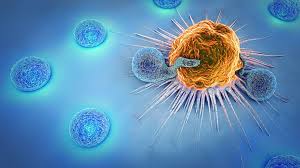A new study from Northwestern University has revealed that juice cleanses, often touted as a health-boosting detox, may actually be harmful to gut and oral health. The research, recently published in Nutrients, suggests that a fiber-free juice diet can promote the growth of bacteria linked to inflammation and cognitive decline.
The Study and Its Methodology
Researchers at Northwestern University examined three groups of healthy adults following different dietary patterns: one group consumed only juice, another had juice with whole foods, and a third ate exclusively whole plant-based foods.
To assess microbial changes, scientists collected saliva, cheek swabs, and stool samples before, during, and after the diets, utilizing gene-sequencing techniques.
Findings: The Impact of Juice-Only Diets
The juice-only group exhibited the most significant increase in bacteria associated with inflammation and gut permeability. Conversely, participants who consumed plant-based whole foods experienced more favorable microbial changes. Those in the juice-plus-food group saw bacterial shifts that were present but less severe than the juice-only participants.
The findings suggest that consuming juice without fiber may disrupt the microbiome, potentially leading to long-term health complications.
“Most people think of juicing as a healthy cleanse, but this study offers a reality check,” said Dr. Melinda Ring, senior author of the study and director of the Osher Center for Integrative Health at Northwestern University Feinberg School of Medicine.
“Consuming large amounts of juice with little fiber may lead to microbiome imbalances that could have negative consequences, such as inflammation and reduced gut health,” Ring added.
Why Fiber is Essential
Juicing removes much of the fiber found in whole fruits and vegetables—fiber that feeds beneficial bacteria responsible for producing anti-inflammatory compounds like butyrate. Without fiber, sugar-loving bacteria flourish, disrupting the gut and oral microbiome.
Additionally, the high sugar content in juice may further fuel harmful bacteria, potentially impacting metabolism, immunity, and even mental health.
Rapid Changes in the Oral Microbiome
One of the most striking findings of the study was the rapid shift in oral bacteria during the juice-only diet. While gut microbiota remained relatively stable, researchers noted a reduction in beneficial Firmicutes bacteria and an increase in Proteobacteria, a bacterial group associated with inflammation.
“This highlights how quickly dietary choices can influence health-related bacterial populations,” Ring explained. “The oral microbiome appears to be a rapid barometer of dietary impact.”
Future Research and Dietary Recommendations
These findings emphasize the need for further research into the effects of juice diets, particularly in children, who frequently consume juice as a fruit alternative.
“The nutritional composition of juice diets — specifically their sugar and carbohydrate levels — plays a key role in shaping microbial dynamics in both the gut and oral cavity and should be carefully considered,” said lead author Maria Luisa Savo Sardaro, a research associate in the Amato Lab at Northwestern University and a professor of food microbiology at San Raffaele University in Rome.
For now, experts recommend prioritizing fiber in dietary choices.
“If you love juicing, consider blending instead to retain fiber, or pair juices with whole foods to help balance the impact on your microbiome,” Ring advised.
Disclaimer: This article is for informational purposes only and should not be considered medical advice. Always consult with a healthcare professional before making any significant changes to your diet or lifestyle.











